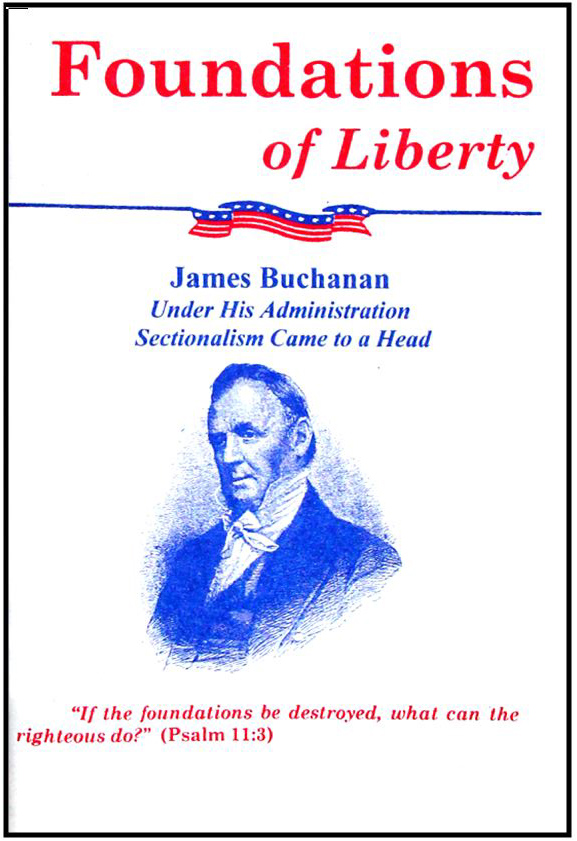- Store
- >
- Presidential Series
- >
- James Buchanan
James Buchanan
SKU:
$5.00
$5.00
Unavailable
per item
Under His Administration, Sectionalism Came to a Head –
James Buchanan had the unfortunate lot of being President when the nation was torn asunder. He was caught in a difficult position in that he did not want to overstep the sovereignty of the states nor see the Union collapse. Prior to his administration, several Northern states had threatened to secede, and that right went unchallenged because the precedent had been set by the secession of the thirteen colonies from England. What the North threatened to do, the South did upon the election of Abraham Lincoln. Under the circumstances, Buchanan chose to do nothing.
This booklet contains the Supreme Court decision by Roger B. Taney on the Dred Scott v. Sanford case with Abraham Lincoln’s response to that decision.
On economic issues, Buchanan warned of instability brought on by paper currency. He stood against the federal government’s entering into internal improvements wherein a local area would receive the benefit rather than the people as a whole. In his day he would be considered weak and at times
liberal-leaning. By today’s standards, however, he would fall into the more conservative faction.
(111 pages)
James Buchanan had the unfortunate lot of being President when the nation was torn asunder. He was caught in a difficult position in that he did not want to overstep the sovereignty of the states nor see the Union collapse. Prior to his administration, several Northern states had threatened to secede, and that right went unchallenged because the precedent had been set by the secession of the thirteen colonies from England. What the North threatened to do, the South did upon the election of Abraham Lincoln. Under the circumstances, Buchanan chose to do nothing.
This booklet contains the Supreme Court decision by Roger B. Taney on the Dred Scott v. Sanford case with Abraham Lincoln’s response to that decision.
On economic issues, Buchanan warned of instability brought on by paper currency. He stood against the federal government’s entering into internal improvements wherein a local area would receive the benefit rather than the people as a whole. In his day he would be considered weak and at times
liberal-leaning. By today’s standards, however, he would fall into the more conservative faction.
(111 pages)
